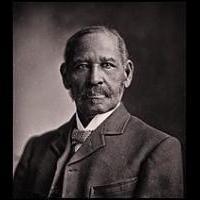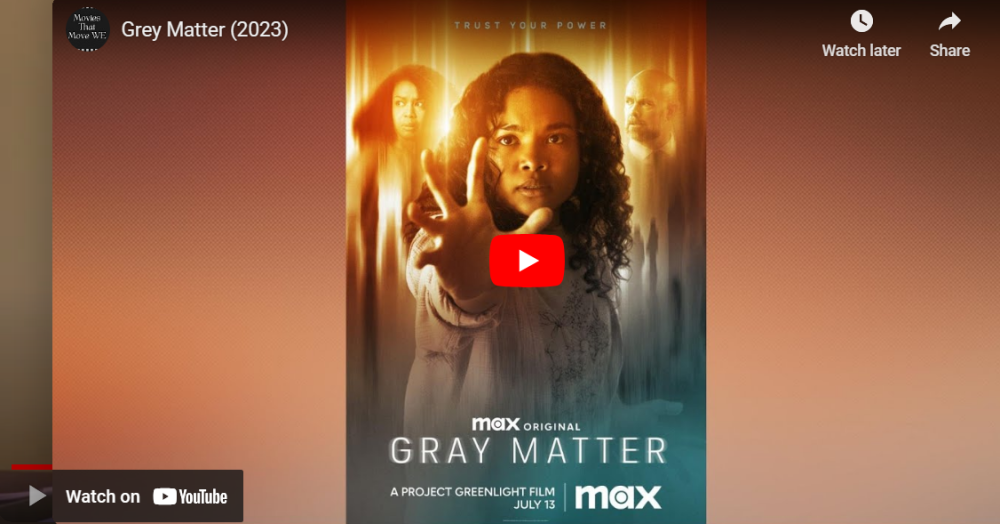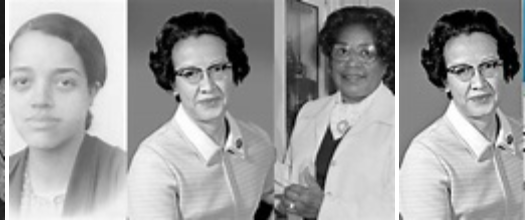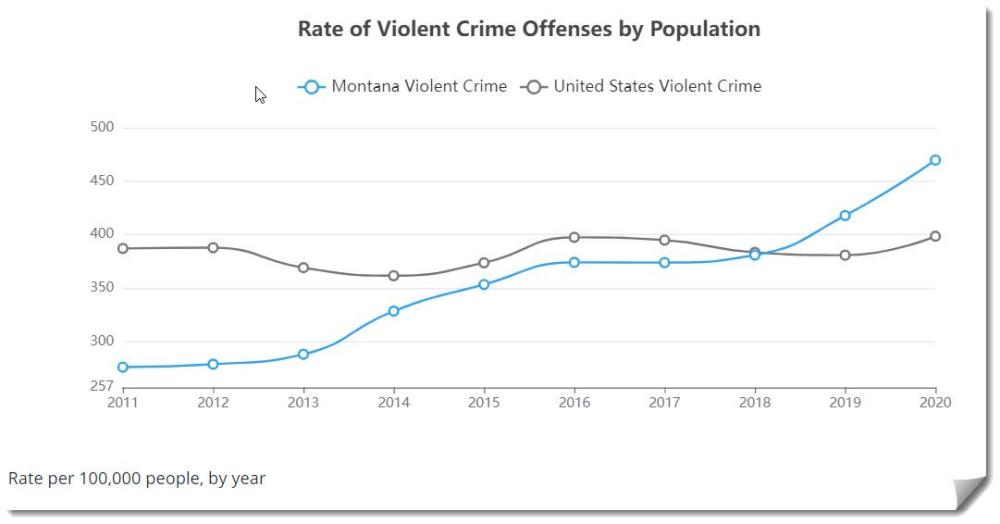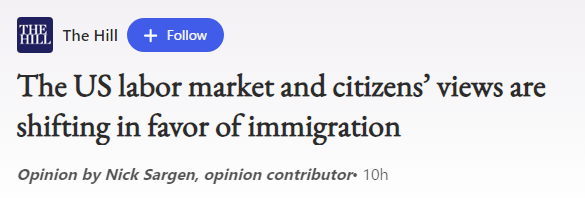Search the Community
Showing results for 'movies that move we'.
-
The Scientific Case for Two Spaces After a Period
A new study proves that half of people are correct. The other is also correct.By James Hamblin
photo by Tina Fineberg / AP
MAY 11, 2018
This is a time of much division. Families and communities are splintered by polarizing narratives. Outrage surrounds geopolitical discourse—so much so that anxiety often becomes a sort of white noise, making it increasingly difficult to trigger intense, acute anger. The effect can be desensitizing, like driving 60 miles per hour and losing hold of the reality that a minor error could result in instant death.
One thing that apparently still has the power to infuriate people, though, is how many spaces should be used after a period at the end of an English sentence.
The war is alive again of late because a study that came out this month from Skidmore College. The study is, somehow, the first to look specifically at this question. It is titled: “Are Two Spaces Better Than One? The Effect of Spacing Following Periods and Commas During Reading.”
It appears in the current issue of the journal Attention, Perception, and Psychophysics. As best I can tell, psychophysics is a word; the Rochester Institute of Technology defines it as the “study of the relationship between stimuli (specified in physical terms) and the sensations and perceptions evoked by these stimuli.” The researchers are also real. Rebecca Johnson, an associate professor in Skidmore’s department of psychology, led the team. Her expertise is in the cognitive processes underlying reading. As Johnson told me, “Our data suggest that all readers benefit from having two spaces after periods.”
“Increased spacing has been shown to help facilitate processing in a number of other reading studies,” Johnson explained to me by email, using two spaces after each period. “Removing the spaces between words altogether drastically hurts our ability to read fluently, and increasing the amount of space between words helps us process the text.”
In the Skidmore study, among people who write with two spaces after periods—“two-spacers”—there was an increase in reading speed of 3 percent when reading text with two spaces following periods, as compared to one. This is, Johnson points out, an average of nine additional words per minute above their performance “under the one-space conditions.”
This is a small difference, though if a change like this saved even a tiny amount of time, or prevented a tiny amount of miscommunication, the net benefit across billions of people could be enormous. Entire economies could be made or broken, wars won or lost.
Or so it would seem. The conclusions she drew from that data pushed people into their corners on social media, where they dealt with it in variously intense ways.
Justin Wolfers, a professor of economics and public policy at the University of Michigan, tweeted in reference to the study: “Science can blow your mind sometimes, and this time it has come down on the side of two spaces after a period.”
Nicholas Christakis, a professor at Yale University, wrote: “Hurray! Science vindicates my longstanding practice, learned at age 12, of using TWO SPACES after periods in text. NOT ONE SPACE. Text is easier to read that way. Of course, on Twitter, I use one space, given 280 characters.”
There’s a lot going on in that tweet, but you get the idea.
Others were less ecstatic. Robert VerBruggen, the deputy managing editor at National Review, shared the study with the comment: “New facts forced me to change my mind about drug legalization but I just don’t think I can do this.”
My colleague Ian Bogost tweeted simply, “This is terrorism.”
Full disclosure: I also shared a screenshot of the study’s conclusion that “the eye-movement record suggested that initial processing of the text was facilitated when periods were followed by two spaces.” I said about this only, “Oh no.”
I find two spaces after a period unsettling, like seeing a person who never blinks or still has their phone’s keyboard sound effects on. I plan to teach my kids never to reply to messages from people who put two spaces after a period. I want this study’s conclusion to be untrue—to uncover some error in the methodology, or some scandal that discredits the researchers or the university or the entire field of psychophysics.
So let’s look for that. Because this really does matter: In a time of greater and greater screen time, and more and more consumption of media, how do we optimize the information-delivery process?
In much the same way that we’re taught to write in straight lines from left to right, most of us have been taught that one way of spacing is simply right, and the other is wrong. Less often are we taught to question the standard—whether it makes sense, or whether it should change. But what is the value of education if not to teach children to question the status quo, and to act in deliberate ways that they can justify with sound, rational arguments?
Such an argument is extremely difficult to make when it comes to sentence spacing, because the evidence is not there for either case. The fact that the scientifically optimal number of spaces hasn’t been well studied was odd to Johnson, given the strength of people’s feelings on the subject. The new American Psychological Association style guidelines came out recently, and they had changed from one space to two spaces following periods because they claimed it “increased the readability of the text.” This galled Johnson: “Here we had a manual written to teach us how to write scientifically that was making claims that were not backed with empirical evidence!”
She was intrigued and designed the new study “to add some scientific data to the conversation.”
Her rationale for two spaces gets complex—verging into the domain of rather high-level psychophysical theory (email me). As the researchers explain it, it’s all about mechanics of the eye, and what causes us to trip up or pause, even for a split second. In the current study, when text was presented with two spaces after periods, some readers’ eyes were more likely to jump over the “punctuation region” and spend less unnecessary time fixated on it. The extra space seemed to make it easier for readers to “extract the lines and curves from the text.” The space also comes into the periphery of one’s vision before it arrives, and that helps to signal that the sentence is wrapping up.
The Skidmore study was small and less than definitive—essentially dipping a toe into a long-unquestioned practice. There were only 60 subjects, and they were all college students—meaning they were probably more interested in “hooking up” and “Snapchat” than actually reading. (Ed.: This is too much editorializing, apologies.)
Most importantly, the effects appeared early in processing, and spacing did not affect overall comprehension. And that’s what reading is all about, no? The fact that our eyes may move a little faster is less important than whether the concepts make it into our brains.
“It’s not like people COULDN’T understand the text when only one space was used after the periods,” Johnson said. “The [human] reading system is pretty flexible, and we can comprehend written material regardless of whether it is narrowly or widely spaced.”
Angela Chen at The Verge also gave a pointed critique of the methodology:
The two-space convention is left over from the days of typewriters. Typewriters allot the same amount of space for every character, so a narrow character like i gets as much as a wider character like w. (This is called a mono-spaced font.) With a typewriter, it makes sense to add an extra space to make it clear that the sentence has ended. Today’s word-processing software makes fonts proportional, though, which is why we only need one space. Also, it looks better. The Chicago Manual of Style and the Modern Language Association Style Manual also take this stance.
“I’ve gotten a lot of flak for using a mono-spaced font (Courier New) in the study,” said Johnson. Her defense is that most eye-tracking studies use monospaced fonts, and that many word-processing systems still, in practice, act like typewriters (in that they don’t add additional space between sentences even when using proportional fonts; to increase the amount of space between sentences relative to the amount of space between any two words within the sentence, two physical spaces are still needed following the period). “Although I agree that future research should look at these effects using other types of fonts, research in this area suggests that font differences in general are small or nonexistent.”
Even in the studies where researchers have removed interword spaces altogether, reading comprehension is still very high. For example, Thai and Chinese are typically written without spaces between words, even though studies have found that when space is added between words, reading speed increases. The standard comes down to aesthetics, tradition, conservation of paper and space—basically, the fact that reading is an act of much more than information delivery.
I’ve written before about the effect of color gradients on reading, and how it goes against the findings of science that our words should be in a single color, usually black and usually on a near-white background, and usually presented in lines of a certain length. This is all a matter of tradition and style, not optimal information transfer. This standard does not work well for everyone. It’s why I thought, for a long time, that I didn’t like books. I wasn’t good at the mechanics of reading. When I found text-to-speech programs and actual audiobooks, it was like finally seeing the turtle in one of those Magic Eye posters that everyone else at the party saw hours ago.
All of this is to say that if we really wanted to do evidence-based delivery of text for maximum comprehension, it wouldn’t be like debating one space or two. It would look totally different: words spewing into your face by some sort of torrent that syncs with feedback about your perception, and slows or pauses when you are distracted, and speeds up when you are bored.
Still, this has been a good exercise in challenging beliefs, at least for me. What is important is that this question not be what breaks us—that Americans remember that we are united by the ideals of democracy, freedom, liberty, and justice that we still hold dear, and which demand our allegiance above any person or party or spacing issue.
James Hamblin, M.D., is a former staff writer at The Atlantic. He is also a lecturer at Yale School of Public Health, a co-host of Social Distance, and the author of Clean: The New Science of Skin.
URL
https://www.theatlantic.com/science/archive/2018/05/two-spaces-after-a-period/559304/
MY RESPONSEAs a writer I used and use grammatical techniques that are uncommon; I received and receive negative commentary in response to said use. But, what is the most potent issue? The most potent issue isn't who is right or wrong. The most potent issue is fear of no norm/standard. I find many people in various arenas are standardphiles or standard fanatics.
I give the following examples: a sports team succeeds in lifting a trophy using a strategy deemed outdated, a writer composes a story that buyers embrace that doesn't utilize common expectations for characters, a person lives comfortably while not acting to the life script all others have around them.
The problem isn't right or wrong, it is the fear of not being able to say who is right or wrong. This fear is huge. When a person whose forebears were enslaved in the usa to whites, says kill whites/kill the usa. The normal /standard response by most blacks or whites in the usa living at the time of this writing is something negative, around the terms: shame on you, you know better, judge individually, we are all family. But what if.... they are allowed? Notice I didn't say right or wrong. What if the condemnation is wrong ? It isn't an issue of opinions but applied opinion. Applied opinion breeds consensus , creates the standards or norms.
All know this. But how big is africa? who is american? who are immigrants to the usa? who are white? Absent applied opinion, the peer pressure is gone, and people are freer to do as they want, even against a majority as individuals.
To writing, it doesn't spell the end of literature, but spells the end of critiques. Judgement requires laws which are attempts as an enforced standard or norm, which themselves are built on applied opinions.
The reaction in the article from others is the purest example. They fear someone not caring what they say, and being surrounded by others who don't care too.
Thus, the individualism, at least in the usa, becomes true, not the mirror of white european descended, pan religious, empowerment that it is.
-
Boo Movies for Halloween
any suggestions, please comment
Cat People 1942
The Seventh Victim 1943
The Uninvited 1944
The Picture of Dorian Grey 1945
The Picture of Dorian Gray - 1945 from Daniel on Vimeo.
Night of the Hunter 1955
Invasion of the Body Snatchers 1956
The House on Haunted Hill 1959
Eyes without a face 1960
The Innocents 1961
The Haunting 1963
Hour of the Wolf 1968
Night of the Living Dead 1968
-
I made a reply to the following
MY REPLY TO THE TOPIC
I will only opine on two quotes from Troy's prose. I can opine on the rest but I will not.
I use the term black statians where he used black americans. Black americans for me represents the people I deem black from the lands commonly called canada to argentina in total.
The first is
QuoteIt was organized by the leader of black america, in so far as we have one, Al Sharpton.
While the definition of any people or leadership in humanity varies historically, in various races in the human race, based on my definition of leadership or its mechanics as well as my definition of black statians, Al Sharpton was never and is not a leader in the Black Statian community in the USA; he isn't a leader in the black statian community of New York State; he isn't a leader in the black community of NEw York city; he isn't a leader in the black community of manhattan. I offer two proofs that satisfy me , and some others.
Recently in harlem, a spitting distance from the national action network, a white owned real estate property went through a administrative/organizational struggle. But sharpton was absent. He didn't even speak with the black elected officials in the city council or state assembly on the issue.
I view Al Sharpton as an advocate, not a leader. Sometimes a leader is an advocate as well, like the great Malcolm X. But sharpton is an advocate, he works for something, ala advocacy , but a leader, as i define one, isn't merely an advocate, they are an organizer as well, and sharpton has always refrained from organization.
My second is Al Sharpton's words concerning his own movement.
He admitted in local media in new york city that when he started his movement, his thing to advocate through, he wanted it to be a christian movement. what is the problem? Not all black people in the usa/new york state/new york city are christian, not all black people in the usa/new york state/new york city are nonviolent, so by his own words he was never interested in something all black statians could gather into. So you can not lead any people when you are unwilling to lead all their tribes or subparts.
the second is
QuoteMaybe that is the result of “progress.”
Well, the problem with the word progress, what you move toward, is answering the question, what are you moving toward. To the topic, what has the black statian been moving toward. One of the problems with the black community in the usa, the black statians is the idea that it is a collective, a unified being. the black statian community had two major historical moments. First when the usa was founded. Second the war between the states.
When the usa was founded most black people were enslaved to whites and a minority of blacks were free. BAsed on their actions what were they progressing too?
The enslaved blacks wanted freedom from whites by any means, violence preferable but exodus from the usa was the goal. Most free blacks fought aside the british to maintain the british colonies and stop the usa from being so the black statians when the usa was founded was 90% progressing to kill whites or leave the nascent usa 10% was looking to kill white colonits and gain land within the british empire. sum it up, most blacks, as well as most native americans , were opposed to the creation of the usa as well as the white europeans in it. SO the creation of the usa and the empowerment of the white europeans in it went completely against the progression of most native americans or black statians when the usa was founded. Thus is it odd to see the future negative .
Then the second for black statians is the war between the states. But again, the three black leadership groups were: black abolotionist leaders absent money, black soldiers who had their guns removed immediately and dispersed throughout the usa as individuals at the end of said war, the black church who was divided on whether to integrate or segregate from whites based on a vote of clergy that was near split 50/50. so what does this mean. black abolitionist had no revenue or resources to act beyond speeches and petitioning after the 13th amendment; they progressed to a small minority in the black community that speaks for money which has existed ever since in the black statian community paramount by Obama, black soldiers embraced through force or desire an individualism; that progression become the largest heritage of the black community in the usa en large, the black church was multivided on what to do which manifested in the exodusters in the western states as opposed to integrated communities in the north east; which was a progression that led to the variances between malcolm/martinthe panthers/the sclbc/fannie lou hamer that led to the variances of barack obama/cornell west/michael jordan/oprah winfrey .
The Black community has never in the history of the USA been majority to one path of progression that is pro usa or integration.
-
5-Minute Morning Yoga
Seven poses to help you wake up and feel energizedBy Melinda Wenner Moyer Sep. 6, 2023
The last thing many people want to do when they wake up is exercise. But if you’re not in the mood for a run or a trip to the gym, yoga is a good way to get moving, and you can do it in as little as five minutes.Yoga can help “to wake up your body and get it ready for the day,” said Neha Gothe, the director of the Exercise Psychology Lab at the University of Illinois Urbana-Champaign. The right poses can stretch the major muscle groups and warm up the joints, while slow breathing promotes focus and can reduce stress and anxiety. No equipment or even sweating is required.
If possible, start your morning yoga routine right after you wake up — and ideally before you reach for your phone, said Laura Schmalzl, a neuroscientist and certified yoga instructor at the Southern California University of Health Sciences.
Begin with slow, gentle movements. Listen to how your body feels, releasing any poses that cause discomfort.
As you hold positions and move through sequences, try “box” breathing, suggested Dr. Natalie Nevins, a family medicine physician and an assistant dean at the Western University of Health Sciences. Inhale for around four seconds, then hold your breath for four seconds, exhale for four seconds and hold your breath again for four seconds before repeating the cycle.
If you have a heart condition, or are uncomfortable holding your breath, Dr. Nevins recommended a simple series of five-second inhales, each immediately followed by a five-second exhale.
Here is a yoga routine recommended by experts to get your day going.

Knees-to-chest
Start by lying on your back and hugging your knees to your chest. You should feel a gentle stretch in the spine. Breathe in and out through the stretch.
Half cobra
Release your legs and roll onto your chest, allowing your forehead or cheek to rest on the floor. Rest your forearms and place your palms on the ground, directly under your shoulders, while keeping your bent elbows tight against your sides.Then gently push away from the floor, lifting your chest and forehead. Feel your spine gently stretch as you continue to slowly breathe in through your nose and out through your mouth. Stay here for three breaths.

Alternating cat-cow
This pose is useful to encourage spine mobility and flexibility. Rise to a kneeling tabletop position, keeping your hands shoulder-width apart and your knees hip-distance apart directly under your hips.On the inhale, arch your back into a cow pose, easing your belly toward the floor, and bringing your head and chest upward so you are gazing toward the sky as you inhale. Then exhale, releasing your breath and pulling your belly up and in and rounding your back into a cat pose.
Alternate between these two poses as many times as you like, feeling your spine and neck stretch in both directions. Feel free to gently move your hips, shoulders or head in a circular motion, breathing slowly as you do.

Child’s pose
This is a gentle and foundational pose that stretches the spine. It’s also a pose you can return to in any yoga class if you need to rest or reset.From the tabletop position, inhale and touch your big toes together behind you. Then sit on your heels, letting your knees open wide to create space beneath you. Or you can choose to keep your knees together, if that feels more comfortable.
As you exhale, shift your hips back and your upper body forward, lowering your torso to rest between or on top of your thighs. If your knees are together and you feel a pinch in your hips, spread your knees apart. Stretch your arms out in front of you, reaching as far forward as feels good, and then rest your forearms on the floor.
Let gravity pull you deeper into the pose. You may feel a stretch in your spine, thighs, arms and buttocks. Stay in this pose for five breaths.

Reclining twist
There are several ways to do this pose, depending on your flexibility and what part of your spine you want to target. Start by lying down on your back and bringing your knees up toward your chest.Hug your knees and place your right hand on your left knee. Let your left arm lie flat, extended on the floor beside you. Twisting from your core, exhale and gently guide your bent legs to fall together to the right side of your body.
Bring your knees toward the floor until you feel a stretch in your back and hips. Then turn your head to look toward your left hand. On an inhale, come back to the center before switching over to the other side.
You may feel a gentle stretching in your hips, buttocks and back and an opening in your shoulders and chest. If you wish to target the upper spine or you want a gentler stretch, you can instead lie on your right side with your legs bent and resting on top of each other. Then slowly twist your upper body to the left. After that, stretch the other side.

Spinal Flex
This gentle back stretch is especially good for people who spend all day sitting at a desk. Sit down on the floor in a cross-legged position and place your hands on your ankles or knees. While inhaling, gently arch your back and lift your chest and chin forward and up. Relax, and while exhaling, round your spine, bending forward slightly and tucking your chin toward your chest. Repeat this sequence five times.
Upward salute
Stand with your feet hip-distance apart. Feel your feet connecting with the floor, and shift your hips forward slightly, remembering to engage your core. Slowly raise your arms overhead and in line with your ears, shoulder-distance apart. Then, turn your palms toward each other and, if you can, let them touch. Bring your gaze up to your hands and feel a stretch in your neck and arms.If you want, try to raise yourself up onto your toes. Find your center as you take several breaths. When you’re ready, slowly lower your arms and the rest of your body to release the pose. Take a few moments to shake out your arms and legs to release any lingering tension.
Produced by Deanna Donegan and Hang Do Thi Duc.
URL
https://www.nytimes.com/interactive/2023/09/06/well/move/morning-yoga-beginner.html
MY THOUGHTS
Breath folks, Breath
-
“Unbury the Future”: Martha Wells’ Full Speech from the 2017 World Fantasy Awards
Martha Wells
Tue Nov 7, 2017 10:00am
The convention defines “secret history” as tales which uncover an alternative history of our world with the aid of fantasy literary devices. Like alternate histories or secret tales of the occult.A secret history might also mean a lost history, something written in a language that died with the last native speaker. It might mean something inaccessible, written in a medium too fragile to last. Like the science fiction and fantasy stories published in U.S. newspapers in the late 1800s. We know a few of those authors, like Aurelia Hadley Mohl [ https://tshaonline.org/handbook/online/articles/fmoae ] and Mollie Moore Davis [ https://en.wikipedia.org/wiki/Mollie_Evelyn_Moore_Davis ] , but how many others were there? Those stories were proof that everybody has always been here, but the paper they were printed on has turned to dust.
We might know that C.L. Moore [ https://en.wikipedia.org/wiki/C._L._Moore ] wrote for Weird Tales, but I grew up thinking she was the only one, that a woman fantasy writer from that time period was like a unicorn, there could only be one, and that she was writing for an entirely male audience. But there were plenty of other women, around a hundred in Weird Tales alone, and many of them, like Allison V. Harding [ https://tellersofweirdtales.blogspot.com/2011/05/who-was-allison-v-harding.html ] and Mary Elizabeth Counselman [ http://www.innsmouthfreepress.com/blog/summer-of-unknown-writers-mary-elizabeth-counselman/ ] , didn’t bother to conceal their identity with initials.
Weird Tales had women poets, a woman editor named Dorothy McIlwraith, women readers who had their letters printed in the magazine. There were women writing for other pulps, for the earlier Dime Novels, lots of them. Including African American Pauline Hopkins [ https://en.wikipedia.org/wiki/Pauline_Hopkins ] , whose fantasy adventure novel appeared in a magazine in 1903.These women were there, they existed. Everybody knew that, up until somehow they didn’t. We know there were LGBT and non-binary pulp writers, too, but their identities are hidden by time and the protective anonymity of pseudonyms.
Secrets are about suppression, and history is often suppressed by violence, obscured by cultural appropriation, or deliberately destroyed or altered by colonization, in a lingering kind of cultural gaslighting. Wikipedia defines “secret history” as a revisionist interpretation of either fictional or real history which is claimed to have been deliberately suppressed, forgotten, or ignored by established scholars.
That’s what I think of when I hear the words “secret histories.” Histories kept intentionally secret and histories that were quietly allowed to fade away.
The women writers, directors, and producers of early Hollywood were deliberately erased from movie history. Fifty percent of movies between 1911 and 1928 were written by women. In the 1940s there were a last few survivors at MGM, but their scripts were uncredited and they were strongly encouraged to conceal what they were working on, and not to correct the assumption that they were secretaries.
With the internet, it shouldn’t be possible for that to happen again. But we hear an echo of it every time someone on Reddit says “women just don’t write epic fantasy.”
You do the work, and you try to forget that there are people wishing you out of existence. But there are a lot of means of suppression that are more effective than wishing.
Like in 1974 when Andre Norton discovered the copyeditor on her children’s novel Lavender Green Magic had changed the three black main characters to white.
Or like in 1947, when African American writer and editor Orrin C. Evans was unable to publish more issues of All-Negro Comics [ https://en.wikipedia.org/wiki/All-Negro_Comics ] because there was mysteriously no newsprint available for him to purchase.
Or like all the comics suppressed by the Comics Code Authority in 1954, which acted to effectively purge comics of people of color and of angry violent women, whether they were heroes or villains, or of any perceived challenge to the establishment. Like the publisher Entertaining Comics, which was targeted and eventually driven out of business for refusing to change a story to make a black astronaut white.
There’s an echo of that suppression when DC bans a storyline [ http://www.hollywoodreporter.com/heat-vision/batwoman-authors-exit-claim-dc-621274 ] where Batwoman proposes marriage to her girlfriend. And again when Marvel publishes a storyline that makes us think Captain America is a Nazi. When we’re supposed to forget that his co-creator Jack Kirby was Jewish, that he was an Army scout in World War II, that he discovered a concentration camp, that he was personally threatened by three Nazis at the New York Marvel office for creating a character to punch Hitler. (Maybe the Nazis would like to forget that when Kirby rushed downstairs to confront them, they ran away.)
There’s been an active level of suppression in movies since movies were invented. At least a white woman writer and director like Frances Marion [ https://en.wikipedia.org/wiki/Frances_Marion ] could win two Academy Awards before she was banished from history, but that wasn’t the case for her contemporary Oscar Micheaux [ https://en.wikipedia.org/wiki/Oscar_Micheaux ] . An African American, Micheaux worked as a railway porter before he wrote, directed, and produced at least 40 films in the black movie industry that was entirely separate from white Hollywood.
That kind of suppression is still alive and well, and we see it when the movie about the Stonewall riots shows the resistance against police attacks through the viewpoint of young white guys and ignores Marsha P. Johnson and Sylvia Rivera [ https://sites.psu.edu/womeninhistory/2016/10/23/the-unsung-heroines-of-stonewall-marsha-p-johnson-and-sylvia-rivera/ ] . Or when Ghost in the Shell features a white actress [ https://www.tor.com/2016/04/20/why-are-we-still-white-washing-characters/ ] instead of Japanese.
We’ve forgotten Sessue Hayakawa [ https://en.wikipedia.org/wiki/Sessue_Hayakawa ] , a Japanese actor who was one of the biggest stars in the silent film era of Hollywood, who was well known as a broodingly handsome heartthrob.
Sometimes history isn’t suppressed, sometimes it just drifts away. The people who lived it never expected it to be forgotten, never expected their reality to dissolve under the weight of ignorance and disbelief.
Hidden Figures by Margot Lee Shetterly unburied the history of the African American women of early NASA, of Katharine Johnson, Mary Jackson, Dorothy Vaughn and the hundreds like them. They were just forgotten over the years, as the brief time when women’s work meant calculating launch and landing trajectories and programming computers passed out of memory. Like the Mercury 13 [ https://en.wikipedia.org/wiki/Mercury_13 ] , the “Fellow Lady Astronaut Trainees” in the 1960s, all pilots, all subjected to the same tests as the men. They retired, they went away, everyone forgot them.
Sometimes when they’re remembered, their contributions are minimized, like when a photo caption calls bacteriologist Dr. Ruby Hirose a “Japanese girl scientist” or labels Bertha Pallan, who was one of the first Native American women archeologists, as an “expedition secretary.” Like the photo post on Tumblr that over and over again, identified Marie Curie as a “female laboratory assistant.” Anybody can be disappeared.
We think we remember them, but then we’re told over and over again, all over the internet, that women don’t like math, can’t do science. That’s the internet that’s supposed to preserve our history, telling us we don’t exist.
Mary Jane Seacole was a Jamaican nurse who helped the wounded on the battlefields of the Crimean War, just like Florence Nightingale. Sister Rosetta Tharpe was the mother of rock and roll. Sophia Duleep Singh was a prominent suffragette in the UK. They’re all in Wikipedia, but you can’t look them up unless you remember their names.
The women who worked in the Gibson Guitar factory during WWII were deliberately erased, their existence strenuously denied, despite the evidence of a forgotten group photo that the company still would like to claim never existed.
Jackie Mitchell, seventeen years old, struck out Babe Ruth and Lou Gehrig in an exhibition game in 1931. Her contract was almost immediately voided by the baseball commissioner. Baseball was surely too strenuous for her.
In 1994, Gregory Corso was asked, “Where are the women of the Beat Generation?” He said, “There were women, they were there, I knew them, their families put them in institutions, they were given electric shock.” Some of them survived, like Diane di Prima, and Hettie Jones.
Book burning draws too much attention. In science fiction and fantasy, in comics, in media fandom, everybody was always here, but we have been disappeared over and over again. We stumble on ourselves in old books and magazines and fanzines, fading print, grainy black and white photos, 16 millimeter film, archives of abandoned GeoCities web sites. We remember again that we were here, they were here, I saw them, I knew them.
We have to unearth that buried history. Like Rejected Princesses [ http://www.rejectedprincesses.com/ ] , by Jason Porath, which chronicles the women of history too awesome, offbeat, or awful to be animated. Or Nisi Shawl’s series the Expanded Course in the History of Black Science Fiction [ https://www.tor.com/tag/history-of-black-science-fiction/ ] . Or Malinda Lo’s LGBTQ YA By the Numbers [ https://www.malindalo.com/blog/2017/10/12/lgbtq-ya-by-the-numbers-2015-16 ] posts. Or Medieval POC [ https://twitter.com/medievalpoc?ref_src=twsrc%5Egoogle%7Ctwcamp%5Eserp%7Ctwgr%5Eauthor ] , sharing information about people of color in European art history. Like Eric Leif Davin in his book Partners in Wonder: Women and the Birth of Science Fiction. Like Cari Beauchamps’ book Without Lying Down, about the women writers, directors, and producers of early Hollywood. Like Catherine Lundoff’s series on the history of LGBT Science Fiction and Fantasy. Like Saladin Ahmed’s articles on the early history of comics or Jaime Lee Moyer’s article on the erasure of early women scientists[ http://www.jaimeleemoyer.com/we-all-know-what-they-did-to-witches/ ] . Like all the librarians and researchers and writers and archivists and fans who work to unbury our past so we have a chance to find our future.
And we have to continue to move forward toward that future in the fantasy genre, like the nominees on this year’s World Fantasy Award ballot, like all the other fantasy novels and short fiction last year that pushed the envelope a little further, or pushed it as far as it would go.
We have to break the barriers again and again, as many times as it takes, until the barriers are no more, and we can see the future our secret history promised us.
Author’s note: I’d like to thank Kate Elliott for reading an early draft of this, and for her help, inspiration, and encouragement.
Editor’s note: Martha Wells’ toastmaster speech was delivered at the World Fantasy Convention on November 5, 2017 and is reproduced here with the author’s permission; a few minor edits have been made and links have been added to the original text for additional context/clarity.
Martha Wells is a science fiction and fantasy writer, whose first novel was published in 1993. Her most recent series are The Books of the Raksura, for NightShade Books, and The Murderbot Diaries for Tor.com. Besides many fantasy novels, she has also written short stories, media tie-ins for Star Wars and Stargate Atlantis, YA fantasies, and non-fiction.
MY THOUGHT
But I think the greater question is not about presence, but action. "We" have always been here is the truth but what do "We" do when lifetimes of merit don't force "Them" to honor or treat "We" at the least equally?
-
Week 4 of the workshop with Betts on Tumblr
Ma'am
based on Girl from Jamaica Kincaid
https://richardmurrayhumblr.tumblr.com/post/728165222399000576/narrative-writing-workshop-with-betts-week4
The First Mass Of The Perihelion At Saint Lamma
https://www.deviantart.com/hddeviant/art/Title-The-First-Mass-Of-The-Perihelion-At-Saint-La-981961141Training Ground
https://rmfantasysetpieces1.tumblr.com/post/728165870205009920/training-groundComplete writing workshop with Betts posts
https://richardmurrayhumblr.tumblr.com/tagged/tumblr writing workshop with bettsCompanion Deviantart folder
https://www.deviantart.com/hddeviant/gallery/88882719/tumblr-writing-workshop-with-bettsficThe soccer blog workshop posts- for it I didn't do all the weeks
https://rmfantasysetpieces1.tumblr.com/tagged/tumblr writing workshop with bettsAfter discussion side a fellow artist. I made a father to son , son to father reflection of girl from Jamaica Kincaid
Title: Boy
Get up and dig a new latrine hole; Get up and clean the tide off the boat; Get up and get the thrush from the field; Get up and clean the hotel's lawn; Get up and search for crabs; Get up gather and remove the hotel's trash; Get up and clean the hotel floor; always work with your head down; always go where Mr. White tells you to; never steal Mr. White's sugar; use your shirt to wrap the cane if no more cloth; when carrying fish don't trip up or no one will want you to carry their fish again; It is best to sweep the hotel at night when the customers are sleep; Is it true you fought in Sunday school?; don't sing songs on the road, people will not hire you; on Sundays act like a good man and be quiet and not the bums you learned those songs from; Don't fight in Sunday school; you musn't speak to those village girls, not even to give directions; don't eat in the street- people will think you are a bum; but I only fight the teacher on Sundays and always after class; this is how to make a reel; this is how to make a hook for the reel; this is how to fish so you will not be a bum singing all over the place; this is how to you repair the roof of my house; this is how you repair the wall of my house; this is how you throw a net; this is how you reel in a net; this is how you clean out a net; remember never smile when you accept a delivery; remember never smile when you complete a delivery; remember never to smile when you confirm a delivery; never sing at any time during a delivery or people will think your a bum; don't sing with that voice or people may think your a girl; don't hang around in groups - a good worker never has time for partying; don't touch people's cars, you might dirty them; don't throw stones at blackbirds, because it might not be a blackbird at all; you have to start fishing in the morning; you have to keep fishing in the afternoon; you have to stay fishing at night; if you don't feel good , keep fishing; only sleep with dem village girls at midnight; never trust dem village girls , never say their kid is yours; if the kid is yours , teach it what i taught you; this is how to spit up in the air if you feel like it, and this is how to move quick so that it doens't fall on you; always spend your money cause you can't save it anywhere; always squeeze bread to make sure it's fresh; but what if the baker won't let me feel the bread?; you mean to say that after all you are really going to be the kind of man who the baker won't let near the bread?
Title: Sir
Why do mornings stink? why are mornings salty? Why do mornings cut my feet? Why do mornings make me cough? Why do mornings make me tired? Why do mornings never have breakfast? Why do mornings make my skin bleach? Can I look up at a white cloud? Is Mr. White your father? Why can't Mr. White cut his own sugar? Why didn't you tell me the cane can cut my skin? Why didn't you ever help me carry fish? Why couldn't you ever help me sweep the hotel? Papa never helped you to. Why you hit me whenever I was happy. Why does nobody smile at church? Why do we live in homes like the village people? why does no one have anything to eat ? My father loved me like I love you, the best love is the love you don't know. why didn't you go out to sea with me? why didn't you fish with me? Why didn't you ever smile when you caught fish, or show off fish? Why do you always grunt to Mama? Why don't you ever smile to Mama? Why didn't you throw a net with me? Why didn't you reel a net with me? Why didn't you clean out a net with me? Why can't I want to do what I do? Why can't I like what I do? Why can't I love what I do? Why can't I tell people I am happy? Why do people think I am a girl if I am happy? Why don't you have any friends? Why can't I have a morning off? Why can't I have an afternoon off? Why can't I have an evening off? Why do you not sleep at home at night? Why do you never trust what mama say? Why is all your money spent on rum? Why did you never let me squeeze bread around you? I don't need your help. So after telling me what do to all the time, you never cared what I did?
URL
https://richardmurrayhumblr.tumblr.com/post/728754332023029760/boy-and-sir




